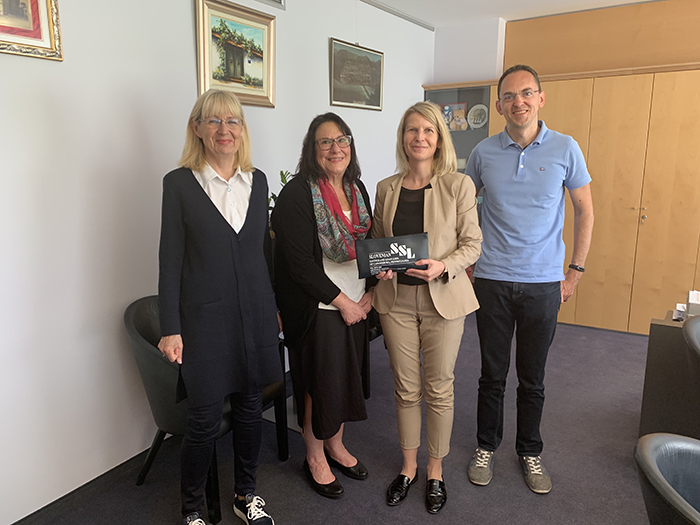When choosing a nominee for the Fullbright Specialist, it was imperative that the candidate was someone who could provide expert client care with the experience and education to back it up. As a recent past president of the American Association of Nurse Practitioners, there was no one better than Joyce Knestrick, Ph.D., FNP-BC, FAANP, FAAN, a nurse educator of over 30 years, to fill this role.
“Being a Fulbright in Slovenia was a great opportunity for me to assist the faculty at the University of Maribor to advance nursing practice in their country,” she says. “The creation of advanced practice nursing programs in the U.S. and in other countries, such as Slovenia, are important to ensuring access to healthcare for all populations in need.”
Dr. Knestrick has always been passionate about maintaining high quality education for Advanced Nurse Practitioners (ANP). Alongside her role as an associate professor and the director of the nurse leadership management and executive leadership tracks at GW Nursing, Dr. Knestrick works at local, regional, state, and national levels to promote ANP practice in education, policy, and clinical care.
With her focus being health and access to care for low-income and rural populations, Dr. Knestrick was “privileged to learn about nursing practice and the healthcare systems in Slovenia, including their focus on health promotion, disease prevention and holistic care, which are tenets of advanced practice nursing.”
Dr. Knestrick knows that there is not a universal approach to quality health care. “The experience of explaining the role of the nurse practitioner in the U.S. also forced me to look at the differences in the RN role in Slovenia,” she says. “Therefore, the curriculum and course development come from a different perspective based on the role of the registered nurse.”
She navigated this challenge by participating in university- and national-level discussions, reviewing curriculum plans, offering suggestions, and providing examples of courses and programs.
Dr. Knestrick found her time in Slovenia to be “both inspirational and challenging,” she explains. “Since each country and health care system is unique, gaining an understanding of the needs of the population is important for developing nursing and healthcare programs that meet their societal needs.”


